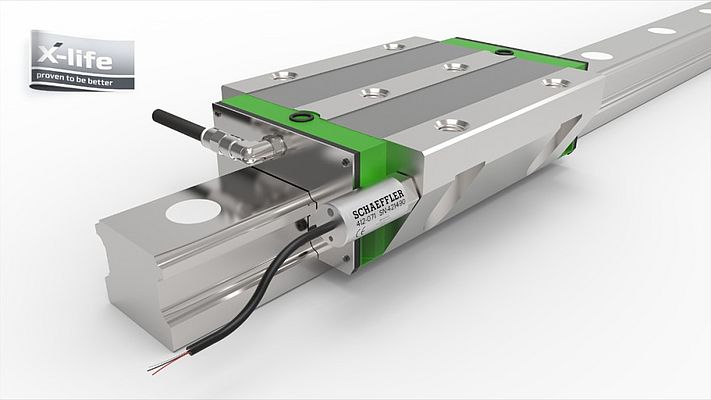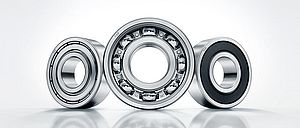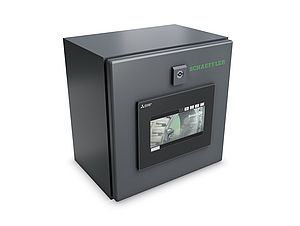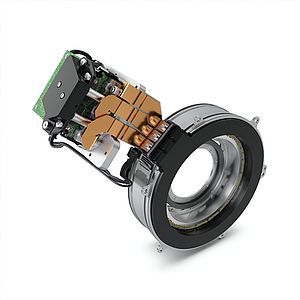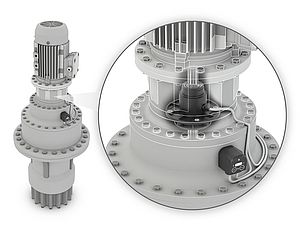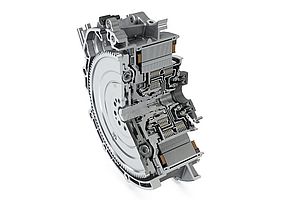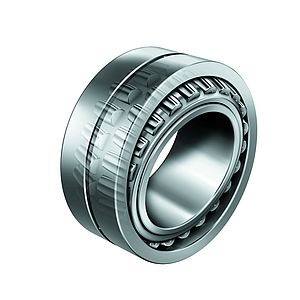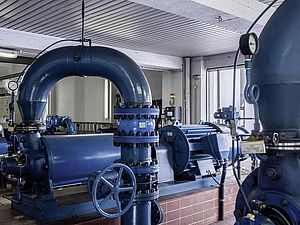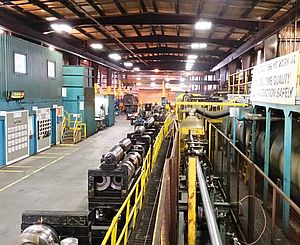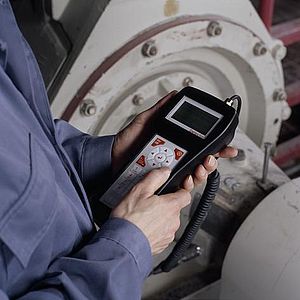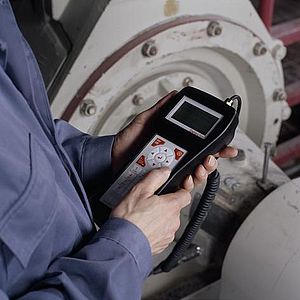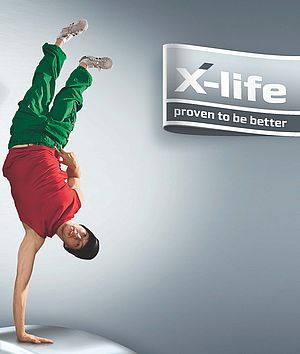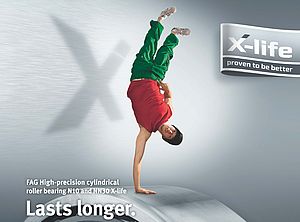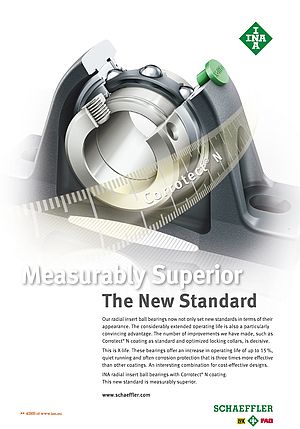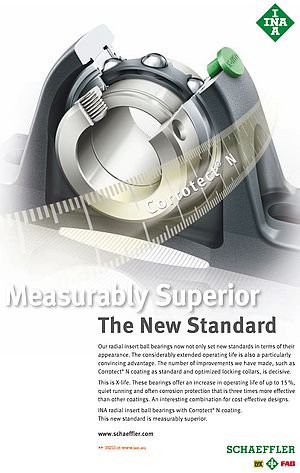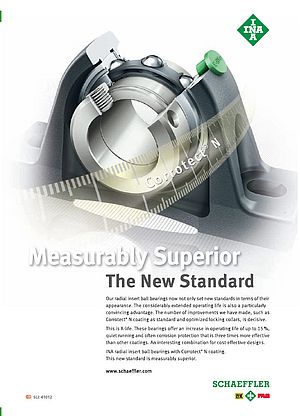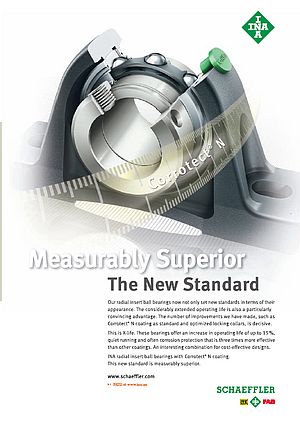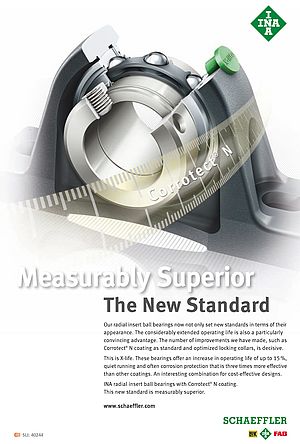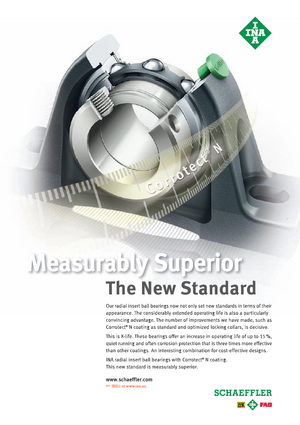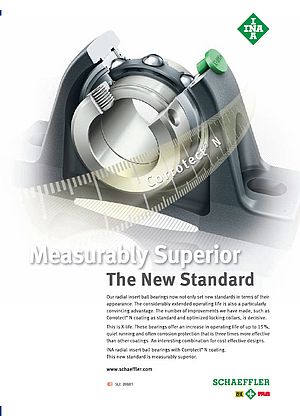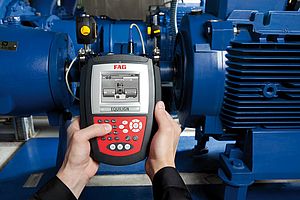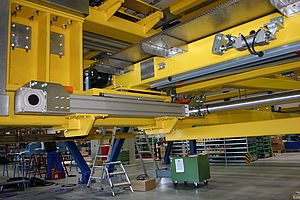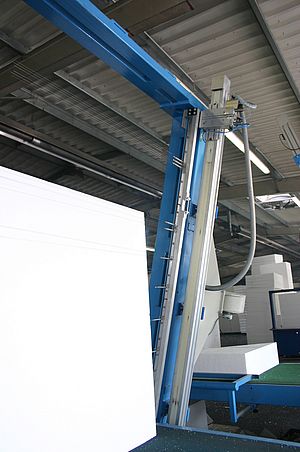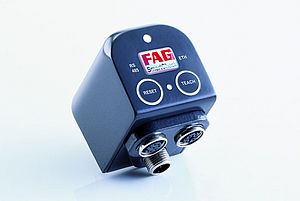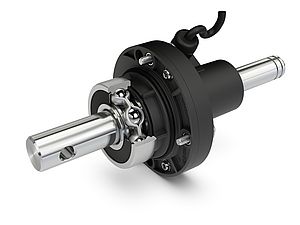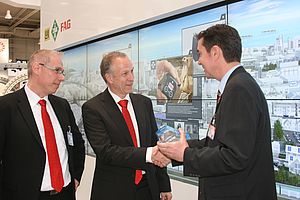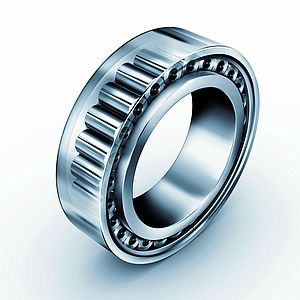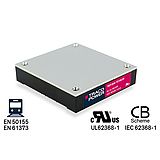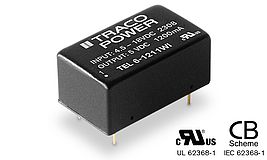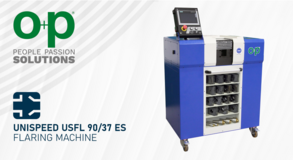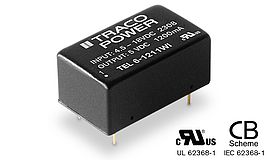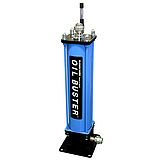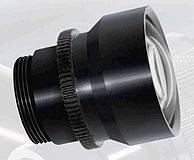Schaeffler integrates sensors and vibration analysis into its linear guidance systems and offers these mechatronic components with automated relubrication. Schaeffler DuraSense provides each individual linear axis with precisely the level of relubrication it needs based on its loads and requirements. The electronic evaluation system allows up to six carriages to be monitored on each axis. The position of the sensor on the carriage can be freely selected on both the KUVE and KUSE four and six-row linear recirculating ball bearing and guideway assemblies and the RUE linear recirculating roller bearing and guideway assemblies; it can be placed on the left or right-hand side of either the carriage and to the left or right of the end piece.
DuraSense reliably prevents both insufficient lubrication and overgreasing, which extends machines’ operating life and reduces the rate of failure. DuraSense also reliably detects relubrication system failures, e.g. due to defective lubrication units, leaking hoses, or blocked lubricating nipples. Complex monitoring using pressure sensors such as those used in centralized lubricating systems is not required. The new system thus protects even heavily interconnected systems against very costly downtimes. DuraSense is of major significance for every sector in which maximum machine availability is a key factor, particularly automobile manufacturers’ production lines, “motion axes” in intralogistics, the food and packaging industry, and automated assembly and handling applications.
Load and requirement-based lubrication under all conditions
If a monorail guidance system is only subject to short travel distances and low forces, DuraSense will trigger less frequent lubricating impulses, which become more frequent as load conditions increase. If foreign bodies get into the carriage as a result of contamination or the carriage becomes contaminated with a fluid medium, this is detected through the solid-borne sound emissions and a lubricating impulse is triggered. As long as the solid-borne sound emissions are above an individually calculated threshold value, the lubricating impulses are repeated. The effect this produces is that the contamination is immediately flushed out of the carriage along with the lubricant.
If the key values return to a normal level again after the lubricating impulses, the raceways and rolling elements have not been damaged by the contamination. Without this innovation, the linear guidance system would remain in operation with contamination in the rolling contact until the next planned lubricating interval – and would thus suffer corresponding initial damage, perhaps even severe damage.
Shortening lubricating cycles as an indicator for calculating remaining useful life
After linear recirculating ball/roller bearing and guideway assemblies have been in operation for a very long time, material fatigue gradually occurs close to the surface. The sensitive measuring system detects this condition and increases the frequency of the relubricating impulses. The linear axis thus runs smoothly for longer and the product quality remains constant for a longer period of time. Even though the linear guidance system remains fully functional in this condition, the fact that the lubricating impulses are occurring at shorter intervals serves as an indicator and starting point for a prediction of the remaining useful life of the monorail guidance system. This calculation, which will in future be available as a digital service (“LifetimeAnalyzer”), allows maintenance work to be scheduled based on actual operating data and the condition of the system.


